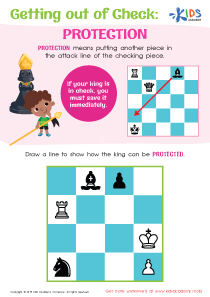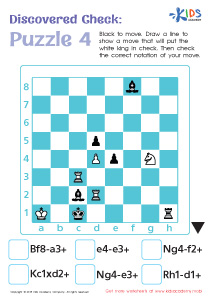Enhancing problem-solving skills Chess Worksheets for Ages 3-7
3 filtered results
-
From - To
Unlock your child's potential with our "Enhancing Problem-Solving Skills: Chess Worksheets for Ages 3-7." Designed for young learners, these engaging worksheets introduce basic chess concepts while promoting critical thinking and strategic reasoning. Each activity is age-appropriate, ensuring that children can grasp complex ideas in a fun and enjoyable way. Through colorful illustrations and interactive exercises, kids will develop essential problem-solving skills, boosting their confidence in decision-making. These worksheets not only cultivate a love for chess but also enhance cognitive abilities that will benefit them in school and beyond. Explore our resources and watch your child's skills blossom as they play!
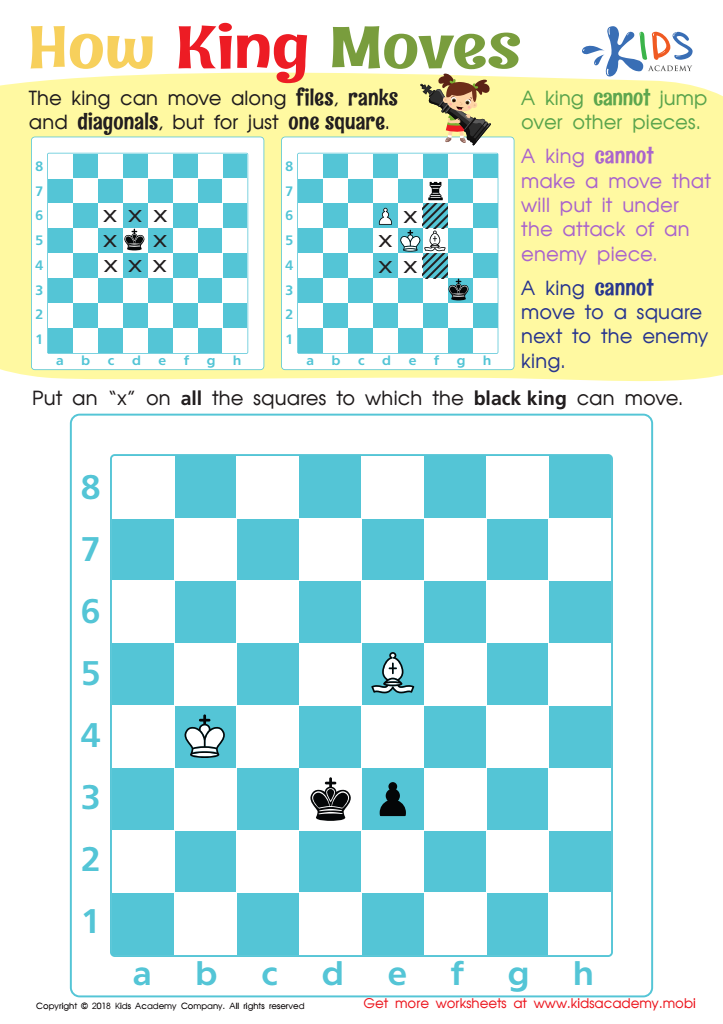

How King Moves Worksheet
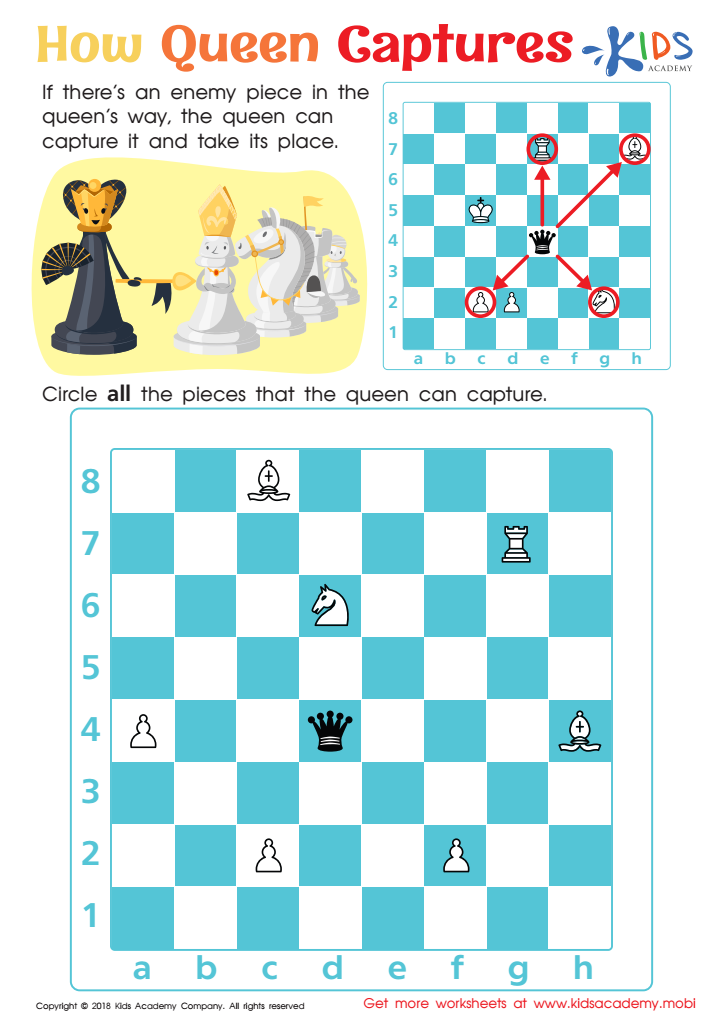

How Queen Captures Worksheet
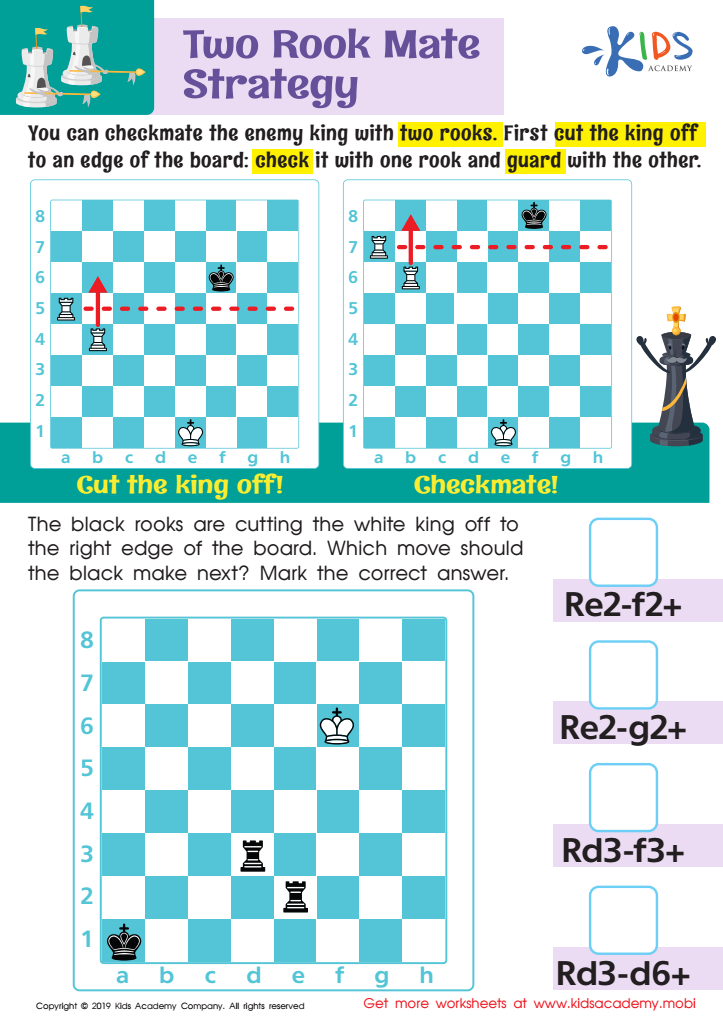

Two Rook Mate Strategy Worksheet
Enhancing problem-solving skills through chess for children aged 3 to 7 offers numerous benefits that warrant attention from both parents and teachers. At this young age, when cognitive development is at a crucial stage, engaging with chess fosters critical thinking, strategic planning, and decision-making—essential skills for lifelong learning.
Chess teaches children to analyze situations, foresee consequences, and weigh risks versus rewards. These analytical skills can easily transfer to academic subjects like math and science, enhancing overall performance. Additionally, the game fosters patience and concentration, helping children improve their focus and diligence, qualities that are invaluable in both academic settings and personal challenges.
Moreover, playing chess nurtures emotional resilience by teaching young learners how to cope with losses gracefully, promoting a growth mindset. The social aspect of chess also encourages teamwork and communication as children often play together, further enriching their development.
In sum, introducing chess to young children cultivates vital problem-solving abilities that equip them for future success. Parents and teachers who prioritize these skills not only facilitate cognitive growth but also prepare children to navigate the complexities of life effectively. This early investment in their development can yield significant rewards in their educational journey and beyond.
 Assign to My Students
Assign to My Students











